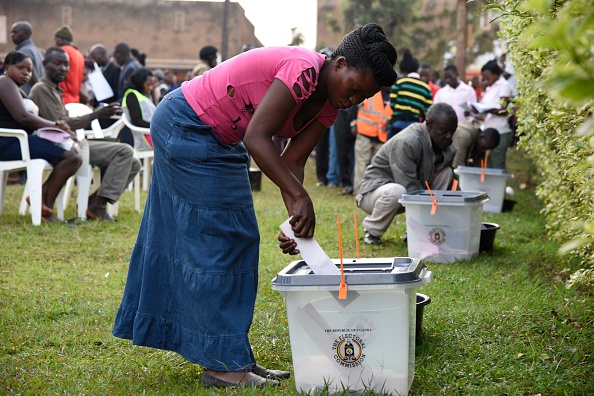KAMPALA, Uganda – Amid delays blamed on slow delivery of voting materials, Ugandans cast ballots Thursday in presidential elections amid a shutdown of some social media sites. A top international election observer called the delays “worrying.”

Even at noon, five hours after voting was supposed to start, some polling stations in the capital, including a major one, still had not received any voting papers. People had formed long lines and ballot boxes had arrived mid-morning, but still there were no ballots, so no one could vote.
President Yoweri Museveni faces a strong challenge from Kizza Besigye, who has called Museveni a dictator and said he doubts that voting will be free or fair.
“If the election is free and fair we will be the first people to respect it, even if we are not the winner,” Besigye said Thursday at a polling station in his rural home of Rukungiri. “But where it is not a free and fair election then we must fight for free and fair elections because that is the essence of our citizenship.”
Many people complained of an apparent shutdown of social media sites like Twitter and Facebook when they couldn’t open those sites on their computers and phones.
Godfrey Mutabazi, the head of the Uganda Communications Commission, said the network failure was likely due to an ongoing operation to contain a security threat.
“It’s a security matter and I cannot answer on behalf of security,” he told The Associated Press.
Some observers suspected it was to keep people from publicly griping about the late delivery of voting materials.
More than 15 million people are registered to vote, for members of parliament as well as president. Many waited under the hot sun to vote at polling stations that at mid-day were still not functioning.
“These cases are worrying because every citizen of Uganda has the right to vote,” said Eduard Kukan of Slovakia, chief of the European Union’s election observer mission. “And if they are prevented by this kind of method then it would have to be criticized, because it would mean that they didn’t manage organizing of the elections the right way.”
Some ballot boxes had missing lids. Voting officials frantically made calls.
“We are late simply because the lids for ballot boxes are not here. The boxes and the lids should have arrived at the same time,” said Moses Omo, an official who was presiding over voting at a Catholic church in the central Ugandan district of Wakiso.
Many of those waiting said they would not leave without voting.
“This is very disappointing but I am going to stay here under the sun until it is my turn to vote,” said Fred Mubiru, a taxi driver. “Nothing will discourage me.”
Although opinion polls had shown Museveni to be ahead of his opponents, analysts expect this election to be his toughest yet, citing the massive crowds Besigye attracted across the country.
Museveni, 71, remains popular in some parts of rural Uganda, where he is seen as a father figure and is beloved by those who remember his time as a guerrilla leader fighting a dictatorship.
He came to power in 1986 and pulled Uganda out of years of chaos. He is widely credited with restoring peace and presiding over economic growth, and is a key U.S. ally on security matters, especially in Somalia. But his critics worry that he may want to rule for life, and accuse him of using the security forces to intimidate the opposition.
Besigye, 59, is running for the fourth time against Museveni. He campaigned on a promise to run a more effective government, vowing to stem official corruption. He said he will continue “the struggle” in other ways if he loses, suggesting a protest movement similar to the one that followed the last election in 2011. That movement was violently put down by security forces.
The New York-based Human Rights Watch said a weak “human rights situation seriously undermines the prospects of free and fair elections and the ability of Ugandans to exercise fundamental human rights such as free expression, assembly, and association.”
The Committee to Protect Journalists has also reported “a worsening pattern of harassment and intimidation of journalists” in Uganda.
Ahead of the polls, there has been a heavy security presence in Kampala, with heavily armed police patrolling the streets and armoured vehicles parked at key junctions.



Comments